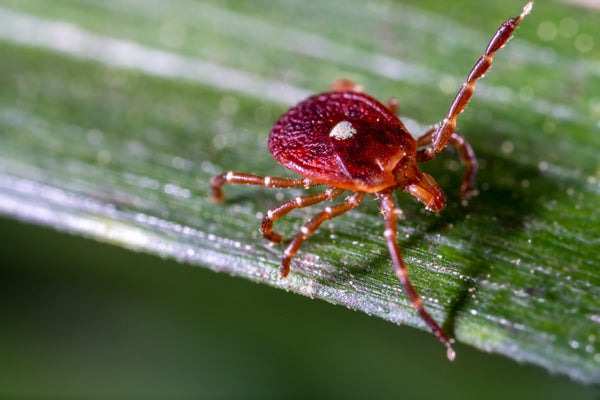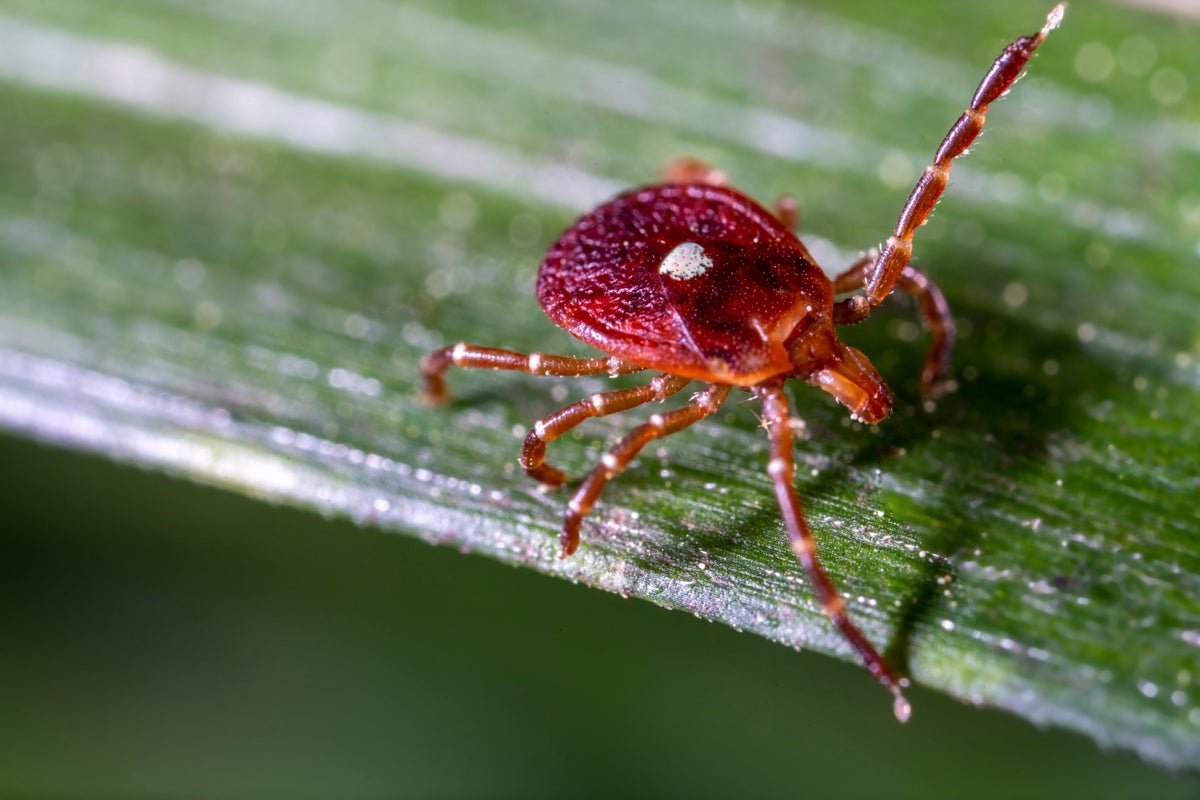November 14, 2025
2 min read
Man With Tick-Borne Meat Allergy Dies after Eating Burger
Lone star tick bites are the most common cause of alpha-gal syndrome, which causes severe allergic reactions to red meat

Kasey Decker/Getty Images
Scientists have confirmed the first death linked to a severe meat allergy caused by a tick bite. The man, who died in 2024 after eating a burger, had alpha-gal syndrome, a disease triggered by tick bites that causes people to develop anaphylactic reactions to red meat and other animal-based products.
The man’s case was detailed in a paper published this week in the Journal of Allergy and Clinical Immunology: In Practice. According to the researchers, the man started to vomit hours after having a burger at a barbecue in New Jersey.
Two weeks before he died, the man had experienced an allergic reaction to a steak. “The tragedy is that they didn’t think of that episode as anaphylaxis, and therefore didn’t connect it to the beef at the time,” said study co-author Thomas Platts-Mills, an allergist at the University of Virginia School of Medicine, who helped discover alpha-gal syndrome and diagnosed the New Jersey case, in an interview with NBC News.
On supporting science journalism
If you’re enjoying this article, consider supporting our award-winning journalism by subscribing. By purchasing a subscription you are helping to ensure the future of impactful stories about the discoveries and ideas shaping our world today.
Alpha-gal syndrome causes allergic reactions to a sugar molecule in meat. It is unlike other food allergies, however, in that the reaction is often delayed: people can feel sick hours after eating meat, and the symptoms can be confused with food poisoning. It is most often caused by a lone star tick bite, although bites from other ticks can cause the syndrome.
Scientists suspect that many people with alpha-gal syndrome may not know they have it—in the man’s case, it took scientists months to work out that he had the syndrome and had died from it. And because of warming winters, tick bites are becoming more common year-round.
People who suspect they may have the syndrome can get tested to confirm it. While there is no cure for alpha-gal, scientists recommend that people with the condition avoid all meat products, as well as dairy, gelatin and some medications made with these products.
It’s Time to Stand Up for Science
If you enjoyed this article, I’d like to ask for your support. Scientific American has served as an advocate for science and industry for 180 years, and right now may be the most critical moment in that two-century history.
I’ve been a Scientific American subscriber since I was 12 years old, and it helped shape the way I look at the world. SciAm always educates and delights me, and inspires a sense of awe for our vast, beautiful universe. I hope it does that for you, too.
If you subscribe to Scientific American, you help ensure that our coverage is centered on meaningful research and discovery; that we have the resources to report on the decisions that threaten labs across the U.S.; and that we support both budding and working scientists at a time when the value of science itself too often goes unrecognized.
In return, you get essential news, captivating podcasts, brilliant infographics, can’t-miss newsletters, must-watch videos, challenging games, and the science world’s best writing and reporting. You can even gift someone a subscription.
There has never been a more important time for us to stand up and show why science matters. I hope you’ll support us in that mission.
Source link




